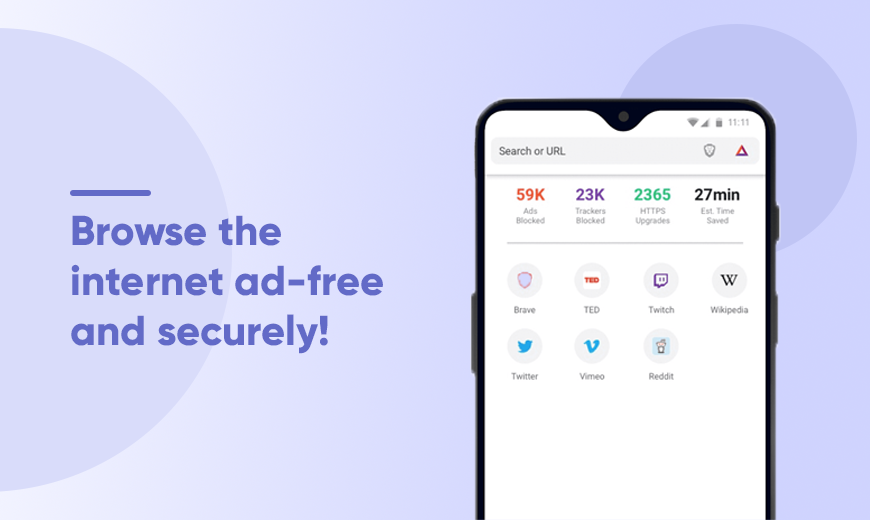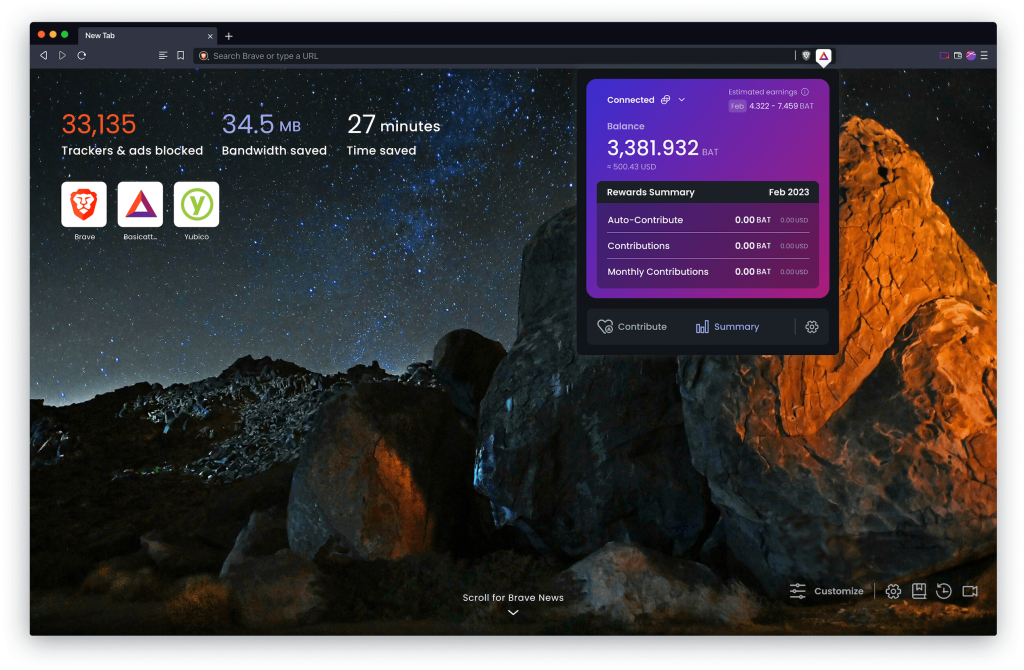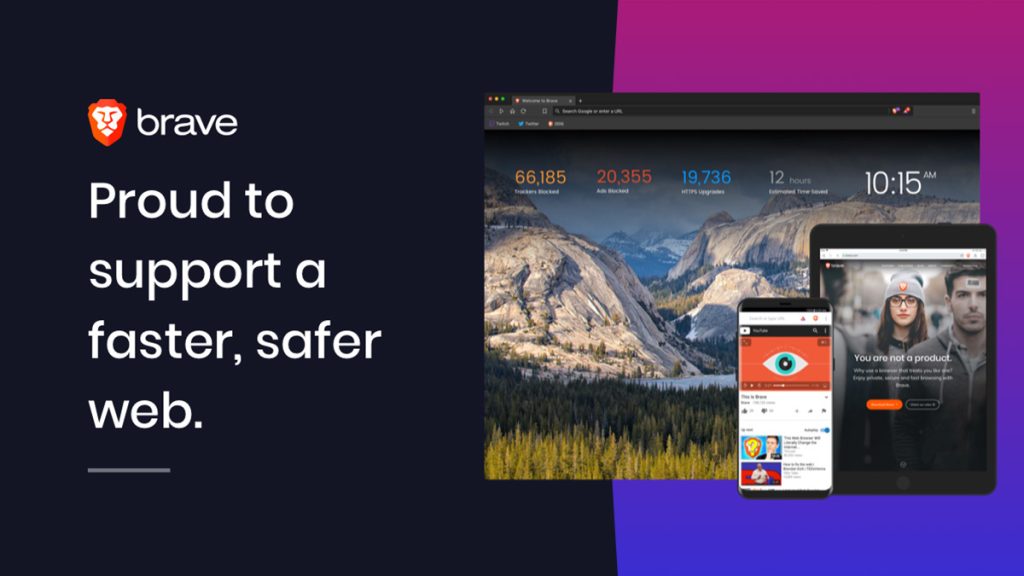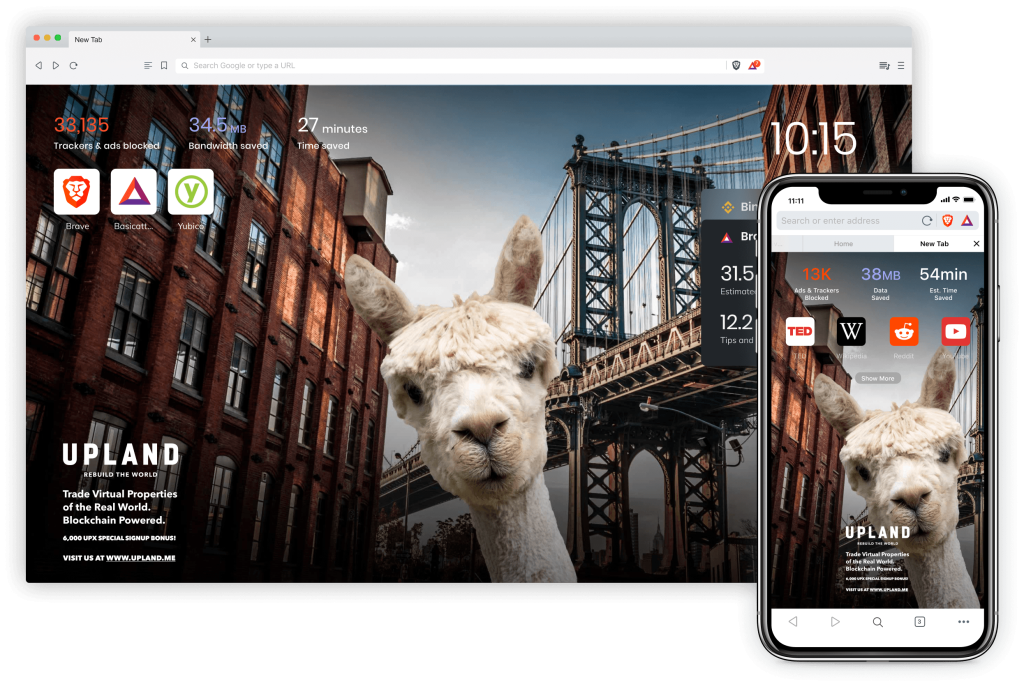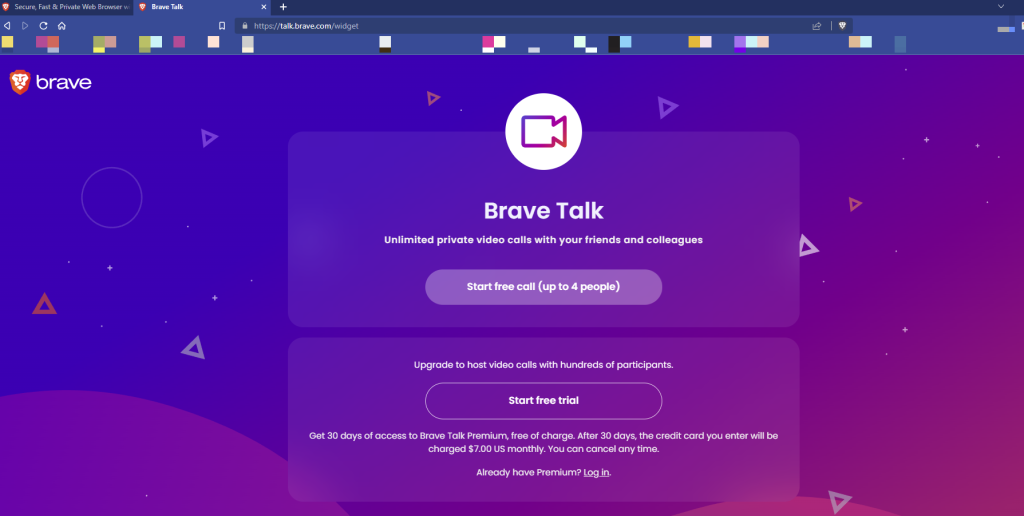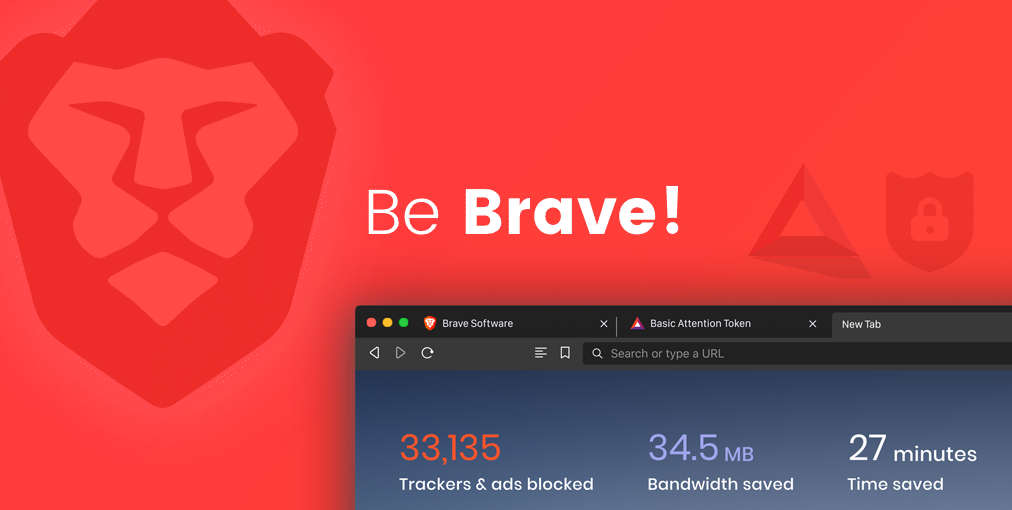Introduction
In today’s digital age, where the internet has become an integral part of our lives, online advertising has grown exponentially. As we navigate through websites, we are constantly bombarded with an array of advertisements vying for our attention.
However, amidst this cluttered online landscape, there is a growing desire for ad-free internet surfing. Ad-free browsing refers to the practice of eliminating intrusive and disruptive advertisements from web pages, thereby providing users with a more seamless and enjoyable online experience.
A Clear Definition
Ad-free internet surfing aims to remove all forms of advertising from websites and applications that users visit. This includes banner ads, pop-up ads, video ads, sponsored content, and any other promotional material that interrupts or hinders the browsing experience. The goal is to create a virtual space where users can freely access information without distractions or interruptions caused by advertisements.
The Power of a Seamless User Experience
The importance of ad-free browsing cannot be overstated when it comes to enhancing user experience on the internet. Traditional online advertising methods often disrupt the flow of our browsing sessions by diverting our attention away from what we initially sought out to find. Intrusive pop-ups obscure content and force us to hunt for elusive “close” buttons; autoplay videos blare unexpectedly; and banner ads clutter up valuable screen real estate.
Moreover, constant exposure to irrelevant or repetitive ads can be frustrating and erode trust between advertisers and consumers. Ad-blocking technologies aim to address these issues by stripping away disruptive elements, leaving behind a cleaner digital landscape for users to explore.
A Glimpse into Main Points
This article will delve deeper into various aspects related to ad-free internet surfing in order to provide readers with comprehensive insights into this emerging trend:
- Section II: The Rise of Online Advertising – Examining the evolution of online advertising, its advantages, and disadvantages for both businesses and users.
- Section III: Benefits of Ad-Free Internet Surfing – Exploring how ad-free browsing enhances user experience by reducing distractions and improving privacy and security.
- Section IV: Methods to Achieve Ad-Free Internet Surfing – Analyzing different tools and techniques, such as browser extensions, VPNs, and premium services, that enable users to enjoy an ad-free internet experience.
- Section V: Challenges and Controversies Surrounding Ad-Blocking – Discussing the potential impact on publishers and content creators as well as the ongoing debates surrounding ad-blocking practices.
By delving into these areas, we will gain a comprehensive understanding of the benefits, challenges, and possibilities associated with embracing an ad-free internet surfing approach. Let us now embark on this enlightening journey towards a more enjoyable web browsing experience devoid of intrusive ads.
The Rise of Online Advertising
Evolution of online advertising from banner ads to targeted ads
Online advertising has come a long way since the early days of the internet when blinking, colorful banner ads dominated web pages. With advances in technology and the rise of data-driven marketing, online advertising has evolved into a sophisticated ecosystem.
Today, advertisers can leverage user behavior data and algorithms to deliver highly targeted ads based on demographics, interests, and browsing history. This shift has allowed businesses to reach their desired audience with greater precision, resulting in more effective campaigns and increased return on investment.
Advantages and disadvantages of online advertising for businesses and users
Online advertising offers numerous advantages for businesses. Firstly, it provides a cost-effective way to reach a global audience compared to traditional forms of advertising like TV or print media.
Advertisers can also track metrics such as impressions, clicks, and conversions in real-time, allowing them to optimize their campaigns for better results. Moreover, online advertising enables precise targeting capabilities that help businesses tailor their messages to specific audiences.
However, there are also some drawbacks associated with online advertising. For businesses, increased competition means higher costs per click or impression as advertisers bid against each other for ad placements.
Furthermore, ad fraud is a growing concern where bots generate fake clicks or impressions leading to wasted ad spend. For users, the most significant disadvantage is the intrusion caused by intrusive and disruptive ads that interrupt browsing experience or slow down page loading times.
Growing concerns about intrusive and disruptive ads
As online advertising has become omnipresent across digital platforms, users have started voicing concerns about intrusive and disruptive ads. Pop-up windows that cover content or autoplay videos with blaring sound have become notorious irritants that disrupt user experience. In addition to being annoying distractions while browsing websites or watching videos online, these types of ads can significantly slow down page loading times, leading to frustration.
Users are increasingly turning to ad-blocking tools or seeking ad-free alternatives to combat these intrusive forms of advertising. The rise of ad-blockers and the demand for an ad-free internet experience reflect a growing need for a more user-centric approach to online advertising.
Benefits of Ad-Free Internet Surfing
Enhanced User Experience
Ad-free internet surfing offers a myriad of benefits that significantly enhance the user experience. One of the primary advantages is the removal of distracting and annoying pop-up ads, which tend to disrupt our browsing activities.
These intrusive elements often appear unexpectedly, diverting our attention and interrupting our concentration. By eliminating such pop-ups, users can enjoy a seamless and uninterrupted online experience.
Another notable benefit is the improvement in page loading times without ad scripts and trackers. Advertisements often come with complex scripts that load alongside web pages, thus increasing their loading time.
The absence of these ad scripts leads to faster page loading, resulting in a smoother and more efficient browsing experience. Users can navigate websites swiftly and access desired information without frustrating delays.
Furthermore, ad-free internet surfing brings about a reduction in visual clutter, leading to an overall cleaner browsing experience. In traditional browsing scenarios cluttered with ads, users are bombarded with promotional content from multiple sources simultaneously.
This constant bombardment can overwhelm and confuse users while hindering their ability to focus on the actual content they sought out in the first place. By removing ads, users can fully immerse themselves in the intended content without any distractions or unnecessary visual noise.
Improved Privacy and Security
Ad-blocking also plays a crucial role in improving privacy and security while surfing the internet. Most advertisements employ tracking cookies that collect user data for targeted advertising purposes.
These cookies allow advertisers to gather extensive information about individuals’ online behavior, creating personalized profiles for targeted marketing campaigns. However, by using ad-blockers or opting for ad-free browsing options, users can effectively eliminate these tracking cookies from their digital footprint.
Moreover, malicious ads pose a significant security threat as they can be gateways for malware infections or phishing attacks infiltrating unsuspecting users’ devices or networks. Ad-blockers help mitigate these risks by preventing the display of such malicious ads, ensuring a safer browsing environment.
By reducing exposure to potentially harmful content, users can navigate the internet with peace of mind, knowing that their personal information and devices remain safeguarded against cyber threats. Ad-free internet surfing offers a range of benefits that greatly enhance the user experience.
Users can enjoy uninterrupted browsing sessions without constant distractions from pop-up ads and experience faster page loading times due to the absence of ad scripts. Additionally, eliminating visual clutter provides a cleaner and more focused browsing experience.
Furthermore, ad-blocking enhances privacy by preventing tracking cookies from collecting user data and improves security by blocking malicious ads that could pose threats to digital safety. Ultimately, embracing ad-free browsing ensures a more enjoyable, secure, and streamlined online journey for users across various platforms and websites.
Methods to Achieve Ad-Free Internet Surfing
Browser Extensions
When it comes to achieving ad-free internet surfing, browser extensions are a popular and effective choice. Among the most widely used ad-blocking extensions are revered names like AdBlock Plus and uBlock Origin. These extensions function by filtering out unwanted advertisements from web pages, ensuring a seamless browsing experience.
Furthermore, these tools provide users with customization options that allow them to block specific types or categories of ads based on their preferences. Whether it’s banishing annoying pop-ups or disabling obtrusive video ads, these browser extensions empower users with granular control over the advertisements they encounter while navigating the vast digital landscape.
Virtual Private Networks (VPNs)
In addition to browser extensions, Virtual Private Networks (VPNs) offer an alternative method for achieving ad-free internet surfing by blocking ads at the network level. VPNs work by establishing an encrypted connection between the user’s device and a remote server, effectively masking their online identity from prying eyes. Within this protected tunnel, VPNs can block ads before they even reach the user’s device, allowing for a cleaner browsing experience devoid of intrusive advertisements.
However, VPNs offer additional benefits beyond ad-blocking alone; they also enable users to bypass geo-restrictions imposed by websites or streaming platforms based on location. This means that with a VPN, users can access content that is otherwise unavailable in their region due to licensing agreements or censorship.
Premium Services
For those seeking an ad-free experience without relying on browser extensions or VPNs, premium services such as YouTube Premium and Spotify Premium offer an enticing solution for a subscription fee. These services provide subscribers with exclusive benefits like uninterrupted music streaming or video playback without any advertisements interrupting the flow of content. In return for financial support through subscriptions, these platforms ensure that users can enjoy their favorite songs or videos without any commercial interruptions.
However, it is important to note that free versions of these platforms still exist, but they come with the drawback of periodic ads. Comparing the free and premium versions allows users to weigh their options and decide whether an uninterrupted ad-free experience is worth the investment.
By utilizing browser extensions, VPNs, or opting for premium services, users can reclaim control over their internet experience and enjoy ad-free browsing tailored to their preferences. These methods empower individuals to browse the web without distractions, while also promoting privacy and security in an increasingly interconnected digital world.
Challenges and Controversies Surrounding Ad-Blocking
A. Impact on Publishers and Content CreatorsOne of the major challenges associated with ad-blocking is its impact on publishers and content creators who heavily rely on advertising revenue to sustain their operations. With ad-blocking becoming more prevalent, these entities face a significant decline in their revenue streams. As a result, they may have to resort to alternative monetization strategies, such as implementing paywalls or sponsored content. Additionally, smaller publishers who cannot afford to adopt these alternatives may face financial struggles or even be forced to shut down. This creates a dilemma where the desire for ad-free browsing clashes with the need for quality content creation.
Conclusion
While ad-blocking offers numerous benefits in terms of enhancing user experience and improving privacy and security, it is not without its challenges and controversies. The impact on publishers and content creators cannot be understated, as they rely heavily on advertising revenue to sustain their operations. However, it is important to strike a balance between a seamless browsing experience and supporting the digital ecosystem.
As technology evolves, new models for sustainable advertising may emerge that respect users’ preferences while also ensuring the viability of online publishing. By embracing innovative solutions and fostering dialogue between users, publishers, and advertisers, we can work towards creating an internet landscape that values both user satisfaction and content monetization.
